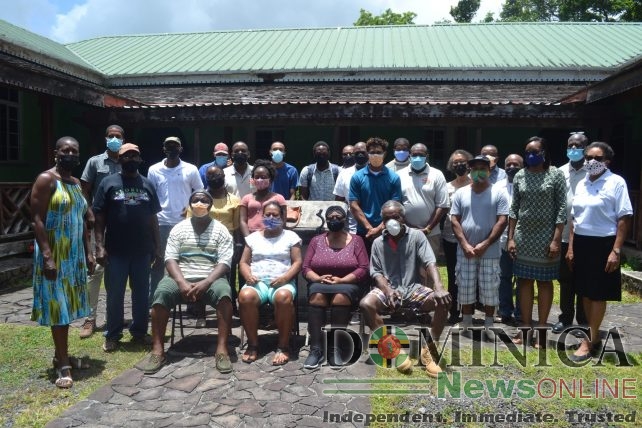
The Caribbean Agriculture Network (CAN) who recently secured funding from the United Nations Development Program (UNDP) – Global Environment Facility (GEF) – Small Grants Programme (SGP) for a project designed to develop an ecologically sustainable model for cocoa production in Dominica is two years later reporting success with this initiative.
At a recent meeting, the Chief Operating Officer (COO) of CAN Dr. Davidson Lloyd, stated that the board objectives of the project which ended on March 31st 2021 were to increase knowledge and awareness of sustainable options for cocoa production, build local capacity on sustainable production techniques to include: establishment, crop husbandry, harvest and post-harvest management, promote climate-smart and economic approaches for the revitalization of the agricultural sector in Dominica, protect and conserve national cocoa genetic resources as well as to build local capacity in plant propagation.
He further announced that thus far, the project has produced 3000 grafted cocoa plants which were used to establish demonstration four plots, supply farmers who provided cuttings and were offered at concessionary rates to farmers of the Northeast Cocoa Producers Cooperative (NCPC) and sold on a first come first serve basis.
Another success of CAN is the establishment of Four demonstration plots, two at Marigot and one each in the Kalinago Territory and Warner.
“In each plot, a selection of 20 to 35 different cocoa accessions were planted (10 of each accession). These are grafted plants that will yield fruit genetically the same as the parent plant from which the scion material was retrieved. These germplasm plots will serve as a source of genetic material for future cocoa expansion,” reported Dr Lloyd.
Though the information about locally available cocoa accessions was lost several decades ago, the COO pointed out that the taste and other fine flavour quality characteristics of Dominica cocoa are due in large measure to its genetic composition.
In that regard, a total of 60 trees were sampled from across the island, in two batches (30 samples each). Samples were collected and prepared using a strict protocol provided by the Cocoa Research Centre (CRC) and sent to their facility in Trinidad for genetic identification. The trees were tagged and georeferenced.
“This is an important component of the project as the demo plots are also intended to preserve and supply cocoa germplasm. Such germplasm plots are no longer kept or maintained by the Division of Agriculture,” he highlighted.
The reports received from UWI revealed that generally, the samples were trinitarian in nature with a strong Criollo and Amelonado ancestry. Sixteen samples had at least 25% Criollo ancestry and nine of these had at least 50% Criollo ancestry.
There were only seven matches with known Trinitario cultivars, including two matches to Imperial College Selection (ICS) 95. A cultivar that is notably resistant or tolerant to the deadly ‘frosty pod rot disease’(caused by the fungus Moniliophthora roreri) three matches to ICS 60, one match each to ICS 40 and Grenada select (GS) 29 and the remaining 53 samples were generally unique among over 5000 reference cocoa types.
As it pertains to capacity building, on November 18, 2018, a training facilitated by Dr Lloyd to introduce the micro-propagation of bananas and plantains was organized and presented to the farmers affiliated with the Northeast Cocoa Producers Cooperative.
The following year, training sessions targeting farmers and Ministry of Agriculture extension staff were held on the following topics: Cocoa plot establishment, pruning, rehabilitation of abandoned cocoa plots and the harvest and post-harvest management of cocoa. A total of 130 persons were trained including 32 women and 98 men.
Training sessions on cocoa grafting and micro-propagation of bananas and plantains also targeting farmers and extension staff were conducted between December 18, 2019, and January 30, 2020.
A total of 57 individuals, including 14 women and 43 men were trained in these programs facilitated by Ivan Ferreira and Dr Lloyd with support from Errol Emanuel who conducted the micro-propagation sessions.
As further expounded by the COO of CAN, Demonstration of the integration of honey production within the cocoa plots is a goal of the project.
“While cocoa is not generally attractive to Bees the idea is that other crops like avocado, citrus and other fruiting trees can be integrated along with ground cover species on farms,” he said.
Four participants were selected from the localities where the demo plots are located to participate in an introduction to beekeeping training which was held at Colihaut on November 26th 2020 and was facilitated by Mr Agnan St Louis, one of the largest, most organized and successful beekeepers and trainers on the island.
The project has in the main met its objectives and the activities of the project were well-received and appreciated by the individual beneficiaries and participants at the various training activities organized by CAN.
Most of the project activities have a natural medium- to long-term duration. Interventions are required for continued monitoring and evaluation to determine the performance of the different sustainable cocoa production options tested on the demonstration plots. The project has established a path forward and explored avenues to diversify the income streams from the farm unit and increase its overall profitability.
However, Dr Lloyd stressed that further agronomic and economic assessments are required.
“CAN is willing to take this important work forward and will continue to seek and build partnerships with the Division of Agriculture, organizations like GEF-SGP, other donor agencies and local organizations to continue this important work in the interest of enhancing livelihoods of rural communities and promoting national development,” he stated.
At the recent ceremony, several individuals who participated in training sessions and key stakeholders were awarded for their hard work and dedication, while several farmers were gifted with vital equipment to assist in the advance of the various sectors.
A symbolic tree planting ceremony concluded the days’ activities.

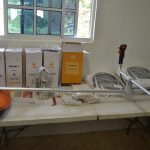
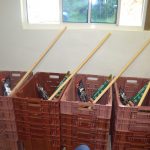
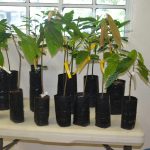
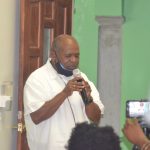
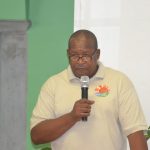
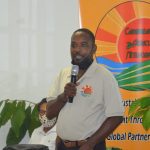
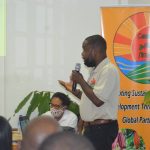
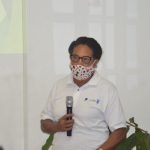
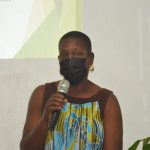
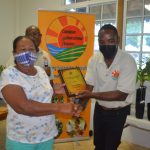
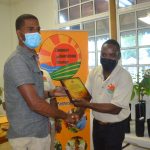
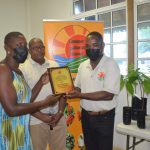
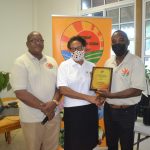
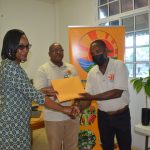
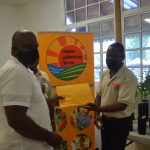
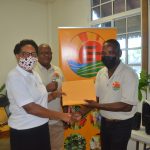
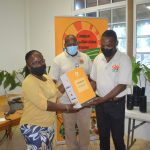
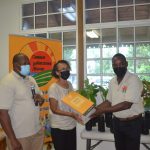
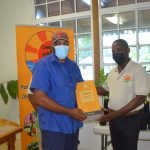
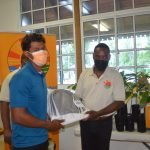
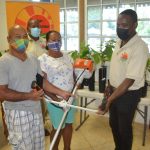
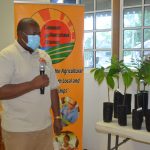
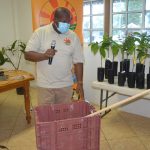
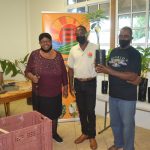
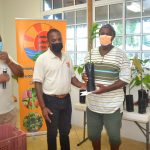
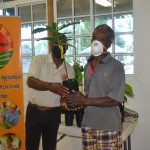
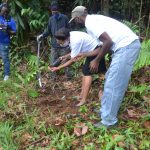
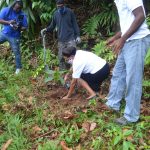
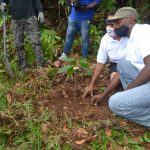
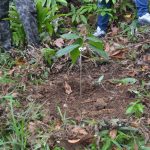
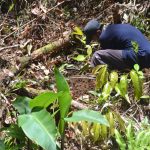
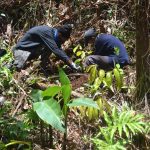
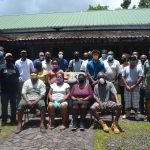
The word is Equipment. It is both singular and plural. There is no such word as equipments. Spell check should have alerted you.
Stupes. I have seen this movie several times before, in different areas and on different stages. I just can’t get excited about anything this Roosevelt Skerrit Corrupt led government says m
Equipment! No S necessary.